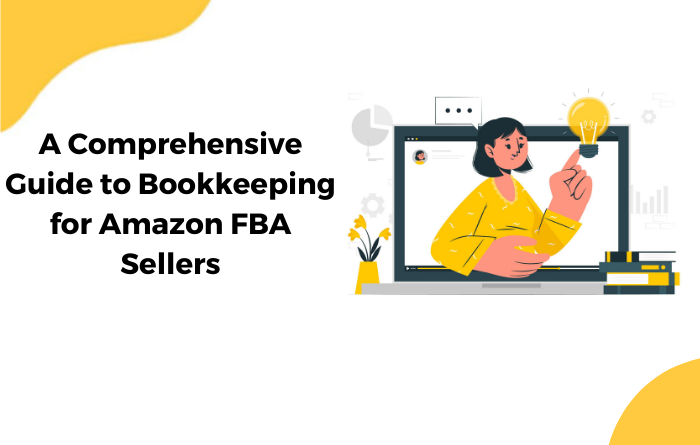Introduction
As an Amazon FBA seller, managing your finances is crucial to your business’s long-term success. Effective bookkeeping ensures that your financial records are accurate, up-to-date, and compliant with tax regulations. In this comprehensive guide, we’ll explore the importance of bookkeeping for Amazon FBA sellers, discuss key components of an efficient bookkeeping system, and provide best practices to help you stay on top of your finances.
Why is Bookkeeping Essential for Amazon FBA Sellers?
Effective bookkeeping is vital for all businesses, but it is particularly important for Amazon FBA sellers due to the unique challenges and requirements they face. Here’s why:
Accurate Financial Tracking
Accurate bookkeeping enables you to track your sales, revenue, expenses, and inventory levels. This information is essential for understanding your business’s financial health and identifying areas for improvement or growth.
Tax Compliance
Amazon FBA sellers are required to comply with various tax regulations, including VAT and corporation tax. Proper bookkeeping ensures that your financial records are in order, allowing you to calculate and report your tax liabilities accurately and on time.
Informed Decision-Making
By maintaining up-to-date financial records, you’ll have access to the information you need to make informed decisions about your business. This includes identifying profitable products, evaluating marketing strategies, and assessing the overall performance of your Amazon FBA store.
Key Components of Bookkeeping for Amazon FBA Sellers
An effective bookkeeping system for Amazon FBA sellers should cover the following key components:
Tracking Sales and Revenue
Record all your sales transactions, including the total revenue generated, as well as any fees, commissions, or discounts associated with each sale. This will help you accurately track your income and monitor your store’s performance.
Recording Expenses
Keep track of all your business-related expenses, such as inventory costs, shipping fees, advertising expenses, and Amazon FBA fees. Accurate expense tracking is essential for calculating your profit margins and ensuring tax compliance.
Reconciling Accounts
Reconcile your financial accounts regularly to ensure that your bookkeeping records match your bank and credit card statements. This process helps to identify any discrepancies or potential issues and ensures the accuracy of your financial data.
Inventory Management
Efficient inventory management is crucial for Amazon FBA sellers, as it directly impacts your cash flow and profit margins. Track your inventory levels, cost of goods sold, and inventory turnover rates to maintain optimal stock levels and minimise storage costs.
Monitoring Profit Margins
Regularly review your profit margins to identify trends and assess the overall profitability of your Amazon FBA store. This information can help you make data-driven decisions about your product offerings, pricing strategies, and marketing efforts to maximise your profits.
Best Practices for Amazon FBA Bookkeeping
To ensure efficient and accurate bookkeeping for your Amazon FBA business, consider implementing the following best practices:
Choose the Right Accounting Software
Invest in reliable accounting software that meets the unique needs of your Amazon FBA business. Cloud-based solutions like QuickBooks, Xero, or A2X can help you automate the bookkeeping process, track your financial data in real-time, and generate insightful reports.
Keep Personal and Business Finances Separate
Maintain separate bank accounts and credit cards for your personal and business finances to ensure accurate financial tracking and simplify the bookkeeping process. This separation also helps to maintain a clear distinction between your personal and business expenses for tax purposes.
Stay Organised with a Systematic Approach
Develop a systematic approach to managing your financial records, including organising digital receipts, invoices, and bank statements. Regularly updating and categorising your financial data will make it easier to locate important documents and ensure the accuracy of your bookkeeping.
Regularly Review Financial Reports
Review your financial reports, such as profit and loss statements, balance sheets, and cash flow statements, on a regular basis. This will help you identify trends, monitor your business’s financial performance, and make informed decisions about your Amazon FBA store.
Consider Outsourcing Bookkeeping Tasks
If you’re struggling to manage your bookkeeping tasks or lack the necessary expertise, consider outsourcing these responsibilities to a professional accounting service that specialises in ecommerce businesses. This will allow you to focus on growing your Amazon FBA store while ensuring your financial records are accurate and up-to-date.
Conclusion
Bookkeeping is an essential aspect of running a successful Amazon FBA business. By implementing efficient bookkeeping practices and regularly reviewing your financial data, you can ensure your store’s financial health, maintain tax compliance, and make informed decisions to drive growth and profitability.
Contact Us
If you need assistance with bookkeeping for your Amazon FBA business, we’re here to help. At Guide Hustle, we specialise in providing accounting services tailored to the unique needs of ecommerce brands, including Amazon FBA sellers, Shopify sellers, and more. Contact us using the form below, and our team of experts will be happy to provide guidance and support to help you manage your finances effectively and grow your business.




